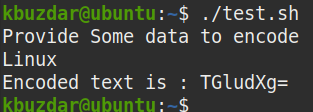

That’s it, now you know how to encode and decode base64 data from command line. $ echo "MTIz" | openssl base64 -d Conclusion $ openssl base64 -d -in encoded.txt -out raw.txt Therefore, if you are not sure that your Base64 string is PNG image, use the Base64 to file converter since it is capable of displaying various file types.

These are some example commands: $ openssl base64 -in raw.txt -output encoded.txt The Base64 to PNG converter will force the decoding result to be displayed as a PNG image, even if it is a different file type. Use this online base64 to image tool to convert a base64-encoded image into any image format (i.e JPG, PNG, ICO, WEBP, AVIF), so you can preview it in your. Openssl works with same way as base64 utility. A good rule of thumb for this is to decrypt the string on the command line, and if you cannot read the output then try writing it to a file and use something like Detect It Easy (D. You can also use openssl to perform base64 encoding and decoding, but it might require to install for the operating system. If the string contains special characters like + or / then there is a good chance the string will decode into something like a compressed file or image. To decode base64-encoded data, use the -d argument: $ echo "MTIz" | base64 -d If you just want to quickly perform base64 encoding for a string and get the output, use any of these commands: $ cat raw.txt | base64 It is widely used to store images and other binary data within. The following program shows how to decode a base64 encoded string in Node. The encoded base64 value, by default, is printed on the stdout if you want to save into an file, you can use either one of following commands: $ base64 -i raw.txt -o encoded.txt Base64 is a binary to text encoding that allows you to represent binary data as ASCII text. In this article, youll learn how to Base64 decode any Base64 encoded data back to binary data using Node.js built-in Buffer API. $ echo -n "123" > raw.txtįor some Linux distros, you might need to specify the input file by using -i, -input : $ base64 -i raw.txt To encode base64 for an input file, issue this command: $ echo "123" > raw.txtīy default, echo command will append a newline character to the output, you might want to omit it by using -n argument.


 0 kommentar(er)
0 kommentar(er)
